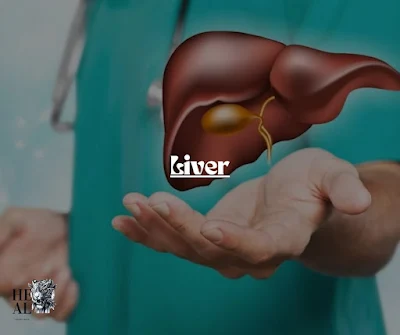Liver and Its Functions
The liver, located beneath the rib cage in the upper right abdomen, is the body’s largest solid organ. It plays a critical role in filtering toxins from the bloodstream, regulating blood sugar levels, aiding in blood clotting, and performing over 500 essential tasks that keep the body functioning smoothly. With its many responsibilities, maintaining liver health is crucial to overall well-being.
 |
| liver |
Key Functions of the Liver
- Filtration: The liver acts as a filtration system for the blood, breaking down harmful substances like alcohol and drugs.
- Bile Production: It produces bile, a fluid essential for digesting fats and removing waste.
- Blood Sugar Regulation: The liver manages blood glucose by converting excess sugar into glycogen for storage.
- Vitamin Storage: It stores vitamins A, D, E, K, and B12, as well as minerals like iron and copper.
- Blood Clotting: The liver is involved in the production of proteins that help blood clot.
The liver ensures that the body remains balanced by managing toxins, aiding digestion, and regulating nutrients.
Anatomy of the Liver
The liver has a unique, complex structure made up of four lobes: the right, left, caudate, and quadrate lobes. The right and left lobes are the largest and are divided by a fibrous structure called the falciform ligament. Each lobe is further broken down into segments that contain thousands of microscopic units called lobules, which carry out various liver functions.
Key Components of the Liver:
- Common Hepatic Duct: Transports bile from the liver.
- Falciform Ligament: Separates the liver into two main lobes.
- Hepatic Artery: Delivers oxygen-rich blood to the liver.
- Hepatic Portal Vein: Brings nutrient-rich blood from the gastrointestinal tract and other organs to the liver.
These parts work together to ensure the liver can perform its essential functions in digestion, detoxification, and regulation.
Maintaining Liver Health
To keep your liver healthy and functioning optimally, it's essential to adopt a proactive approach to wellness. Here are some tips to protect this vital organ:
- Avoid Illicit Drugs: They strain the liver’s ability to detoxify the body.
- Moderate Alcohol Intake: Excessive alcohol can damage the liver over time.
- Exercise Regularly: Physical activity supports overall health, including liver function.
- Eat a Balanced Diet: Consuming a diet low in unhealthy fats helps prevent liver diseases like fatty liver.
- Safe Sex Practices: Protect yourself against hepatitis and other sexually transmitted diseases.
- Get Vaccinated: Vaccines for hepatitis A and B can protect the liver from infections that may cause long-term damage.
By following these guidelines, you can reduce your risk of developing liver diseases and ensure that your liver stays healthy for years to come.
Common Liver Conditions
The liver is susceptible to various conditions, some of which include:
- Fatty Liver Disease: An accumulation of fat in the liver, often caused by poor diet and lifestyle habits.
- Cirrhosis: Scarring of the liver due to prolonged damage, often from alcohol or hepatitis.
- Hepatitis: An inflammation of the liver caused by viral infections or autoimmune issues.
- Liver Cancer: Cancer that originates in the liver, often linked to chronic hepatitis or cirrhosis.
Consulting a healthcare provider regularly and maintaining a healthy lifestyle are key to preventing these conditions from progressing.
For more information, check these trusted sources:
